Text
A.I. is the next superstar
Artificial Intelligence, also know as A.I., has been the big talk of 2023. It has transformed many industries and will continue to revolutionize the way we live and interact. This year alone, we’ve seen several AI technologies, like ChatGPT and Lensa, garner widespread attention on social media. The record industry is the latest to be affected by the AI revolution.
According to a VICE article, a faceless producer by the name of Ghostwriter blew up on Tiktok after he released a snippet of his AI generated song “Heart on My Sleeve.” The reason the sound went viral was not simply because it was AI generated, but because the mysterious producer was able to synthesize vocals that sounded exactly like Drake and The Weeknd. The lyrics are apparently Ghostwriter’s, but the voices are unmistakable. There’s also a Metro Boomin tag in the song, though, as far as we know, he did no produce the beat. Not to mention, it’s a very catchy song and something that Drake and The Weeknd could undoubtedly come up with. Over the course of the last week, the song has racked up millions of listens on TikTok and Spotify. When you go to listen to the song on Youtube, you’ll find that the song is no longer accessible. Instead, you’ll see a notice that states: This video is no longer available due to a copyright claim by Universal Music Group.
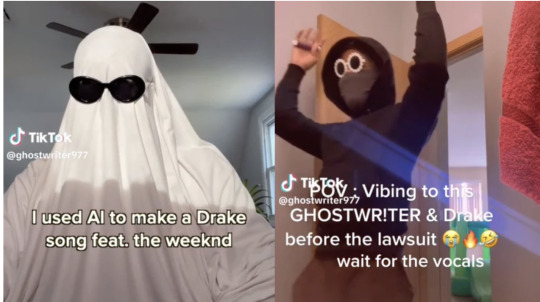
This song has raised many questions and concerns by the music industry that need some thinking through. Do Drake and The Weeknd earn royalties on a song they didn’t write, or technically perform? In regards to performance royalties, what does it mean to “perform.” Should this mysterious “Ghostwriter” be allowed to profit off of the name and likeness of other artists, or do the artists have the right to sue. Although this is still a developing story, and a lot of hashing out will be done before any of these questions can be answered, an artists by The Verge has some insight on the situation. The Verge finds Ghostwriter’s come-up to be a bit strange, even for viral TikTok standards. There are so many TikTok videos being posted daily, and countless artists trying to promote their music on TikTok, that it'd be surprising that this Ghostwriter went viral without the help of someone. The Verge also considers “Heart on My Sleeve” to be a revenge prank by Drake himself on a producer who released a snippet of an Ice Spice song being performed by Drake’s voice only days before. Whatever it is, The Verge believes that something weird is going on, and it’s important to figure out what that is before racing to make pronouncements about AI and the future of music.
Word Count: 454
I went over the word count, but this was a very interesting blog I didn't know how to fit it all in.
0 notes
Text
Software engineering is not trending at tech companies anymore. Who would have thought.
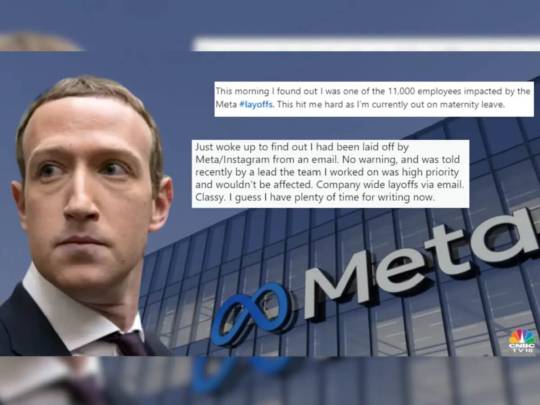
Meta has been laying off its workers amidst the changing new landscape of the tech world. Around 4,000 workers were laid off the week prior, as part of Mark Zuckerberg’s “year of efficiency” plan. Zuckerberg reportedly said that the company is following a different “operating model” which consists of tighter budgeting and slower hiring. Zuckerberg told his employees that the company would grow its workforce by just 1% to 2% per year for now, as he plans for more layoffs in next coming month. Meta last year announced these plans, estimating that it would affect a quarter of their employees worldwide, across all of its divisions including WhatsApp, Instagram, and Facebook.
In 2023, mass layoffs in tech companies are on the rise with software engineers being the most affected, making up nearly 20% of tech company layoffs. Meta’s recent layoffs were also mostly impacting technical jobs. During the pandemic, tech was on the rise with many people working remotely but now, the demand for online jobs are down, and the economy is not doing so well either. AI is also a possible contributing factor, with its ability to increase worker productivity and have less workers do the same work.
This stems from Meta’s recent financial struggles, according to Zuckerberg who said that last year was “the first time that our growth was negative year over year.” This could be from a multiple of reasons, with Facebook and Instagram facing a lot of competition with TikTok, along with decreasing advertising budgets and increasing regulations that have been slowing their growth. The metaverse hasn’t shown any promise yet either. The changing markets and macroeconomic conditions, along with Covid and wars have left Meta to accept its defeat in not seeing these trends before, as Mark Zuckerberg wished he had.
The massive layoffs follow Elon Musk’s own layoffs since he took over Twitter. Elon fired 80% of his staff and Twitter is still pretty much functioning, which showed many other tech companies that it is possible to work on a tight budget. The future of tech jobs seems to be slowing down and will remain so, reflective of the slowing down of the market. It seems that many other tech companies will follow suit, and mass layoffs will continue to trend throughout the year.
Word Count: 382
0 notes
Text
Twitter is no more. Say hello to 'X'
It’s been about a year since Elon Musk began his acquisition of Twitter Inc., which completed on October 28th. How has the app been doing under Musk’s supervision? According to Musk, who sat down with BBC on April 12th in a rather surprising interview, Twitter is thriving. Musk claimed that the app has “record high usage” and is doing really well despite firing many of the employees. An article by Vox refutes Musks' claims that the app is flourishing, citing Similarweb data which shows three months in a row of year-over-year traffic decline. Vox spoke with over half a dozen former employees at Twitter, many of whom said the platform was only alive because of the technical strength and reputation it’s built over the past 17 years. Any attempts to write the eulogy of Twitter, though, are still premature. Musk has a past of proving his doubters wrong.
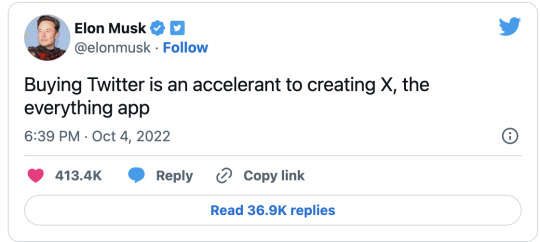
The acquisition of Twitter Inc. by Musk is part of a bigger plan, says the billionaire tycoon. In an October 4th Tweet, Musk stated that “buying Twitter is an accelerant to creating X, the everything app.” Musk quietly merged Twitter Inc. into X Corp., therefore Twitter Inc. no longer exists. X Corp is a privately held corporation, incorporated in Nevada, and with its principal place of business in San Francisco, California. Musk’s vision for X corp is inspired by the Chinese app WeChat, which has become an all-encompassing utility for China. WeChat allows Chinese citizens to pay bills, buy public transportation, register their details, grocery shop, communicate, etc.
The main goal seems to be simplified payments with “expanded financial options'' that are all in one place. Musk also has some history tied to the name ‘X’. When Paypal was being established in the early 2000s, Musk served as CEO of the company originally named ‘X.’ After it was acquired by Paypal, the name changed. In an interview with CBS from 1999, Musk believed that people are at the point where they’re ready to use the Internet as the ‘main financial repository.’ His vision seems to have persisted since. Musk believes that the acquisition of Twitter has accelerated the development of X by 3-5 years, but only time will tell.
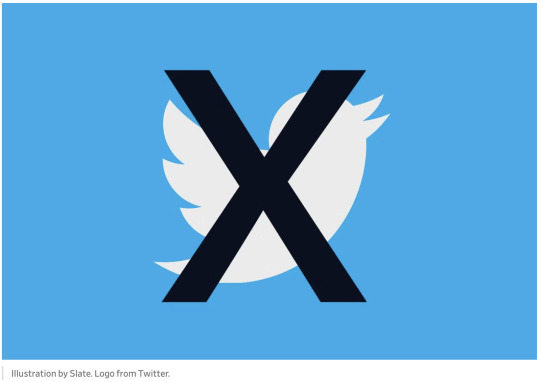
Word Count: 367
0 notes
Text
The US is saying bye-bye to ByteDance… or so they think.
Amidst the court cases and political drama surrounding TikTok and its parent company Bytedance, there is another app emerging called Lemon8, which is (shocker) also owned by ByteDance. Lemon8 is an app that is popularly described as a combination of Pinterest and Instagram, mainly a photo based app that allows for blog style posts for people to share photos as well as information about food, health, fashion and more. It is emerging as the new lifestyle app, and people are flocking to it.
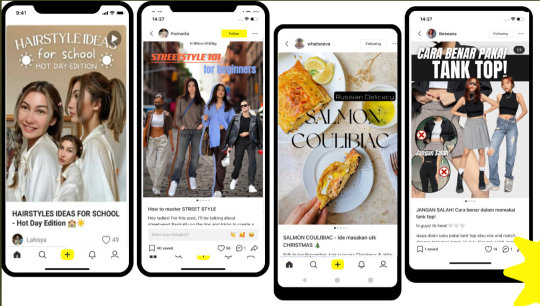
Lemon8 originally launched in Japan in 2020, but it recently started becoming popular in the US. Over the past two weeks, Lemon8 has been downloaded 650,000 times in the US alone, making it the top ranking lifestyle app on the App Store, and number 7 on Google Play’s lifestyle app list. Part of the push has to do with Lemon8’s strategy in paying influencers to create content on the app, as well as advertise the app on other platforms. TikTok has been a platform where Lemon8 has been reviewed favorably by creators and influencers.
The recent push with Lemon8 from ByteDance is most likely attributed to TikTok facing the possibility of getting banned. The RESTRICT Act is being considered in Congress, which would ban TikTok on the basis of the security risks it poses to the American government and its officials. This also explains why ByteDance is not publicly making it obvious that it owns Lemon8. On the App store, Lemon8 is owned by Heliophilia Pte.Yet, a Singapore based company. But reporters learned that the headquarters of that Singapore based app was at ByeDance.
ByteDance has probably been working overtime to be ready for any outcome from Congress. compensating creators and even establishing a team in New York to manage Lemon8’s growing partnerships. The future of Lemon8 remains as uncertain as TikTok’s future, as it is still owned by a Chinese operated company, and it can also be under the scrutiny of the US government in the future. The US must decide how they will deal with Chinese based apps profiting in the US market, and whether banning apps is the best solution to security risks.
Word Count: 361
0 notes
Text
Twitter continues to go downhill, this time with verification checkmarks.
Verification is a way for social media platforms and its users to identify profiles that belong to a person or organization that is recognized or prominent for whatever reason. Twitter’s new update “Twitter Blue” is a threat to this, as it now charges accounts 8$ a month or for organizations, $1,000 a month to keep their blue checkmark. The reason he does this is for security and bots, as a scammer won’t be able to afford 8$ a month; scammers on the app today can open up thousands of accounts free of charge. Vox writes about the first few months of the program and how it was rocky, with “verified” impersonators taking the stage, and impersonating big names like LeBron James spreading false information. While Twitter has implemented solutions to some of these impersonators, there’s still a problem, which is that Twitter’s verification no longer represents a symbol of authenticity.
On April 1, Musk announced that Twitter would be removing blue checks from legacy accounts. This means that, everyone has to eventually pay for Twitter Blue, and even celebrities and artists and prominent people will have their check marks removed, and will have to subscribe for it instead. Many celebrities and journalist groups have stepped out and said that they would not be paying for “Twitter Blue.” This is a threat to the user experience on Twitter. User’s Twitter Feeds will be looking a lot different, with only paid users showing up in the For You recommendations. This only makes Twitter’s verification even less authentic, if only those who pay make up its community. This threatens Twitter's loyal user base, because if all they see on their For You feeds are people they aren't interested in, and filled up with only accounts who pay for the subscription, then it defeats the purpose of Twitter, which like many other social media platforms gives the users agency on what content and whose content they want to see. This seems to be going against the original AI model of Twitter, as Musk will be pushing paid accounts in the For You Page, not actual content that could be "For You."
Word count: 358
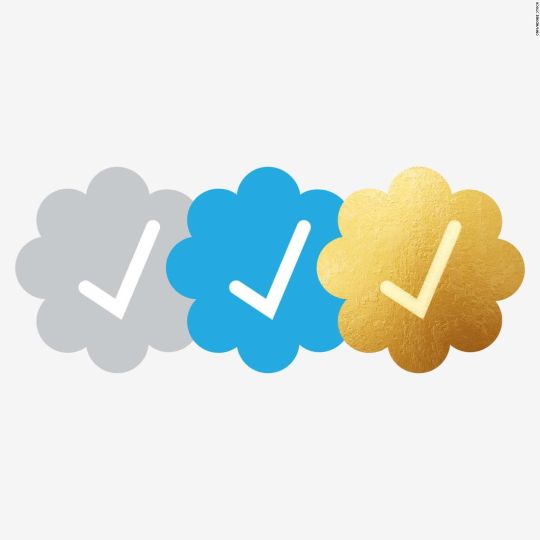
This picture shows the three checkmarks Musk introduced. Blue is for individuals, grey is for government accounts, and gold is for accounts associated with organizations. The gold check is $1,000 a month, plus another $50 for each associated account.
Word count: 398
0 notes
Text
Is TikTok getting banned?
The banning of TikTok almost happened during Trump’s administration in 2020, when he called for the app to be banned. There is a chance the Biden administration will ban TikTok, and in the midst of this the Chinese company ByteDance, which owns TikTok is considering a sell-off of TikTok to an American company to avoid being completely banned.
According to Social Media News there’s been growing concern from cybersecurity experts that think that TikTok poses a threat to national security. According to Bloomberg, a divestiture is the last resort, that results in a sale or public offering, that happens only when a company’s proposal with national security officials doesn’t get approved. For a sell-off to happen, the Chinese government would also need to approve of it, and it seems that they aren’t too keen on doing that. The Chinese government has made statements about how the US shouldn’t have the power to ban a Chinese app without having a good reason to do so, but according to The New York Times, the Chinese government could use TikTok as a way to collect data and personal information from US citizens.
TikTok is a small problem when looking at Chinese surveillance risks in the US, according to New York Times. The best way to reduce the collection of data would be for the US legislation to force companies to increase their cybersecurity protections and make stricter regulation laws. There is also discussion about how the US is better off focusing on passing a comprehensive security law that targets all companies that pose security threats, rather than targeting just one company. There are obvious security threats in the US when it comes to tech companies, and banning TikTok might be a smart move, if the Chinese government doesn’t approve the sell-off.
Word Count: 300

0 notes
Text
Congratulations. You are no longer the product of Social Media.
According to Vox, Meta will be releasing a subscription based model where users have the chance to pay $12 a month and be a part of the “Meta Verified” program. Users who pay will get a blue verification badge, more security and protection, access to customer support that’s a real human, and increased reach and visibility as well. Twitter has already done this by releasing a similar subscription based model by charging $8 a month, but Meta is not simply copying Twitter. It’s already a trend in the industry, where companies are charging extra for premium products and services. Snap, YouTube, and Discord already have versions of this concept. This shift in the industry is relevant because the lines between advertising and organic content are being blurred, which hasn’t happened before.
The increased visibility is the highlight of Meta’s new plans. While the average user might not find this new program appealing, a lot of creators and business owners are very likely to take advantage of this, because increased reach means more business which means more money. Meta is saying that they wouldn’t prioritize paid content in feeds, but more so in Reels and the Explore page.
As much as there may be a lot of benefits to certain users, and obvious benefits to Meta itself, there are also a lot of risks associated with this paid verification program. For one, Instagram will be more commercialized, and less about sharing organic content. Also, Gen Z is an audience that prefers authenticity over commercialization, and this paid verification program risks pushing away Gen Z, which are the users “it needs the most to stay relevant in the future.” Social Media Today writes that history shows, hardly 1% of Meta’s users will consider this program. But perhaps Meta knows that the program won’t be adopted by most users, but the very few that do will still help financially. How fully users will embrace this paid program is unknown, but it definitely presents a lot of good opportunities for creators and businesses that can treat it as a business cost.
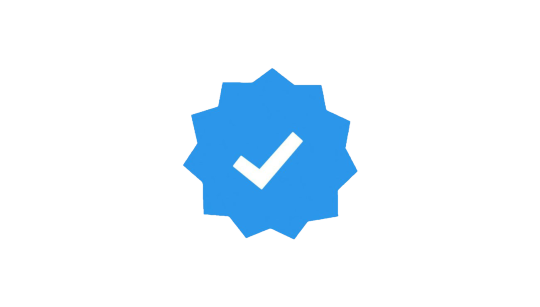
Word count: 347
0 notes
Text
Is Twitter breaking...?
Twitter has been glitching like crazy, according to the New York Times. The article discusses how users are having difficulty posting tweets, following other users, sending messages and using basic functions on the app.
Elon Musk bought Twitter back in October and laid off/fired over half of its employees. From 7,500 employees to only 2,200 left, it’s not too much of a surprise that Twitter is having technical issues. Musk has also cut down costs after closing one of their data centers which caused outages in the app. Outages started in late December, with outages happening all over the world.
Twitter users aren’t the only ones encountering problems with the app. Twitter’s glitches are causing problems for Musk’s own account as well according to Social Media Today. He himself is experiencing problems with his engagement, “This is ridiculous,” he said at a meeting, “I have more than 100 million followers and I’m only getting tens of thousands of impressions.” As a result of this he “demanded” an investigation to look into the decrease in engagement. When they showed him that his profile was low in engagement according to Google Trends Charts, he was furious about it. It doesn’t seem like it’s just an algorithmic issue. Engagement is not the biggest problem with the app. There are serious issues with the system itself, if users cannot perform basic functions like tweeting a simple message.
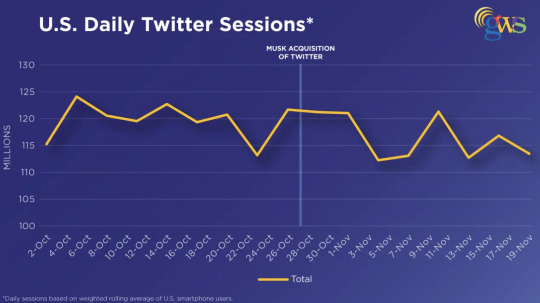
The article also writes that Twitter needs more money to get in line with Elon Musk’s ambitions for the future of the app. He predicts that “‘Twitter 2.0’ will have 1 billion users a month by 2024”, according to Insider. His ambitions are grand. How factual it will be, only time will tell. In the same article, it is revealed that Twitter was losing its most active users, also known as “heavy tweeters.” “Heavy tweeters,” make up less than 10% of monthly users, but they “accounted for 90% of all tweets and half of the company’s global revenue.”
Word Count: 338
0 notes
Text
My Sector is Social Media
My Sector is Social Media and I will be following Mashable, Social Media Today, and The New York Times.
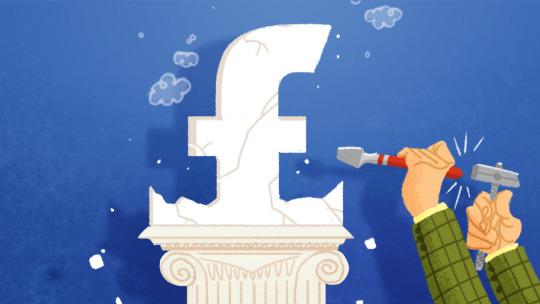
1 note
·
View note